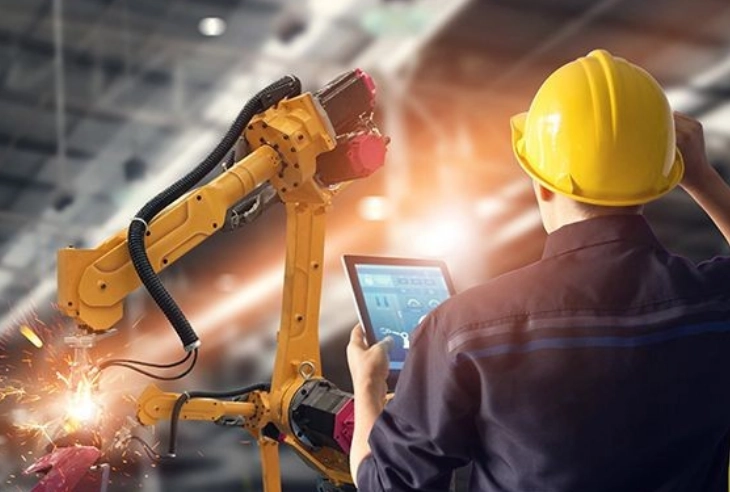
In the realm of construction, automation stands as a revolutionary force, a genuine catalyst reshaping the very essence of project execution. Beyond mere modernization, it plays a pivotal ...
In the realm of construction, automation stands as a revolutionary force, a genuine catalyst reshaping the very essence of project execution. Beyond mere modernization, it plays a pivotal role in propelling innovation to the forefront. This transformative shift not only redefines the construction process itself but also sets new benchmarks for efficiency, quality, and safety standards.
This article closely examines the numerous advantages of automation in this sector, fully utilizing new technologies and thus outlining the future of construction.
Automation in construction represents a major revolution in how activities were traditionally conducted. It involves the use of advanced technologies, such as specialized software, intelligent sensors, and robots, to automate tasks that were previously done manually. This radical shift towards automation aims to significantly improve operational efficiency, process accuracy, and safety on construction sites.
By adopting automation, the construction industry can optimize various aspects of its operations, from project planning to execution. Emerging technologies enable faster and more accurate execution of repetitive tasks, freeing up human resources to focus on more complex aspects of projects that require specific skills. Moreover, this digital transformation promotes a safer approach to construction sites by minimizing risks associated with human errors and implementing automated systems for monitoring and preventing accidents.
In summary, automation in construction represents a radical change aimed at modernizing the entire sector by leveraging the benefits of advanced technologies to improve efficiency, accuracy, and safety in construction operations.
Automation stands as an indispensable lever for the modernization of the construction industry. By capitalizing on the advantages of emerging technologies, it breathes innovation into project realization.
A study by Financesonline highlights that construction companies actively seek automated features, with a strong interest in project tracking 73%, work cost calculation 72%, project estimating 66%, accuracy improvement 47%, and standardization 39%. These statistics testify to the growing desire of the sector to leverage automation to improve various aspects of its functioning, from planning to project execution.
In this perspective, here are in detail the key benefits that automation offers in the construction industry :
Automation goes beyond merely enhancing efficiency; it acts as a catalyst for holistic process optimization within the construction industry. Workflows experience a streamlined transformation, with automated task management minimizing inefficiencies. This streamlined approach ensures smoother coordination between teams, reducing delays and errors throughout the project lifecycle. Moreover, the automation of administrative processes, such as document management and communication, significantly contributes to a more transparent and efficient project management framework. Emphasizing process optimization through automation becomes a foundational element in the industry's journey toward modernization and continuous improvement.
At the core of automation's impact in the construction sector lies a significant improvement in efficiency. The automation of repetitive tasks results in swift and efficient project execution. This consistency in productivity substantially reduces the overall time required to complete construction projects. The time saved contributes to meeting project deadlines, satisfying the demands of stakeholders. Furthermore, automation's ability to handle time-consuming activities swiftly allows human workers to redirect their focus toward more intricate and strategic aspects of projects, promoting a more effective and resource-efficient approach.
A pivotal role played by automation in construction is its contribution to enhanced accuracy and error prevention. By automating various processes, the technology eliminates the margins of human error often associated with manual tasks. Automation's early intervention in project processes facilitates the prompt detection and resolution of issues as they arise. This proactive approach translates into more precise execution in both the design and realization phases of construction projects. The heightened reliability of automated processes not only reduces costs related to subsequent corrections, touch-ups, and repairs but also fortifies the overall quality standards within the construction industry.
Automation stands out as a crucial factor in ensuring enhanced quality within the construction industry. Real-time monitoring and control, facilitated by automated systems, result in consistently high-quality outcomes. Automation enables strict adherence to predefined parameters for each project, ensuring meticulous compliance with established standards. Integrated quality controls throughout the construction process guarantee that the final products meet the elevated expectations of stakeholders. Therefore, automation not only contributes to heightened efficiency but also serves as a driving force in elevating overall quality standards throughout the construction sector.
Automation plays a pivotal role in advancing project management and planning within the construction industry. By fostering communication and coordination among diverse project stakeholders, it creates an environment conducive to seamless collaboration. Project managers leverage automated systems to share real-time information, track progress, and synchronize activities more efficiently. This fosters a shared understanding of project goals, timelines, and stages, mitigating the risks of misunderstandings and enhancing decision-making based on accurate data.
A standout advantage of automation in construction lies in its capacity for long-term cost reduction. By diminishing reliance on human labor, automation brings about substantial savings in labor costs. This reduction in the workforce not only impacts salary expenses but also minimizes errors and the need for subsequent touch-ups. The improvements in efficiency and work quality result in additional savings by reducing costs associated with construction errors, delays, and subsequent corrective interventions. Hence, automation emerges as an indispensable tool for optimizing costs while upholding a high level of performance.
The incorporation of automated safety monitoring processes marks a significant stride in fortifying the safety culture within construction sites. Through the automation of safety monitoring, companies proactively prevent risks and mitigate workplace accidents. Automated systems have the capability to instantly detect potentially hazardous situations, enabling swift intervention to avert incidents. This proactive approach contributes to the establishment of a safer working environment, ultimately reducing the incidence of accidents and injuries. Consequently, automation emerges as a foundational element for championing safety on construction sites, enhancing worker protection, and elevating the overall quality of projects.
Automation in construction serves as a driving force for innovation by optimizing existing processes and introducing novel technological solutions. By catalyzing the emergence of more efficient methods, it stimulates the growth and modernization of the construction industry. Through the integration of emerging technologies and innovative practices, automation opens avenues for more advanced approaches, thereby contributing to the continuous technological development of the sector. This ongoing evolution empowers companies to stay competitive, explore new possibilities, and proactively tackle emerging challenges.
These advantages position automation as an essential ally for the future of construction, offering promising prospects for a more efficient, safe and innovative industry.
In conclusion, automation proves to be a major transformative force in the construction industry, fundamentally revolutionizing how projects are realized.
This article has explored in detail the advantages of automation, highlighting its key role in modernizing the sector. Through automated features such as project tracking, cost calculation, project estimation, accuracy improvement, and standardization, construction companies can enhance their operational efficiency. From improved efficiency to project management and cost reduction, automation offers significant benefits. By fostering innovation and technological development, it contributes to the continued growth of the sector.
Thus, by integrating automated technologies into their processes, construction companies are better equipped to tackle the challenges of the industry and ensure their success in an ever-evolving environment.
As construction embraces automation, it not only enhances its present capabilities but also lays a robust foundation for future advancements. Automation emerges not merely as a tool but as an essential ally, guiding the industry toward greater efficiency, innovation, and resilience. The future of construction is intricately entwined with the evolution of automation, marking a paradigm shift that promises enduring success and progress.


